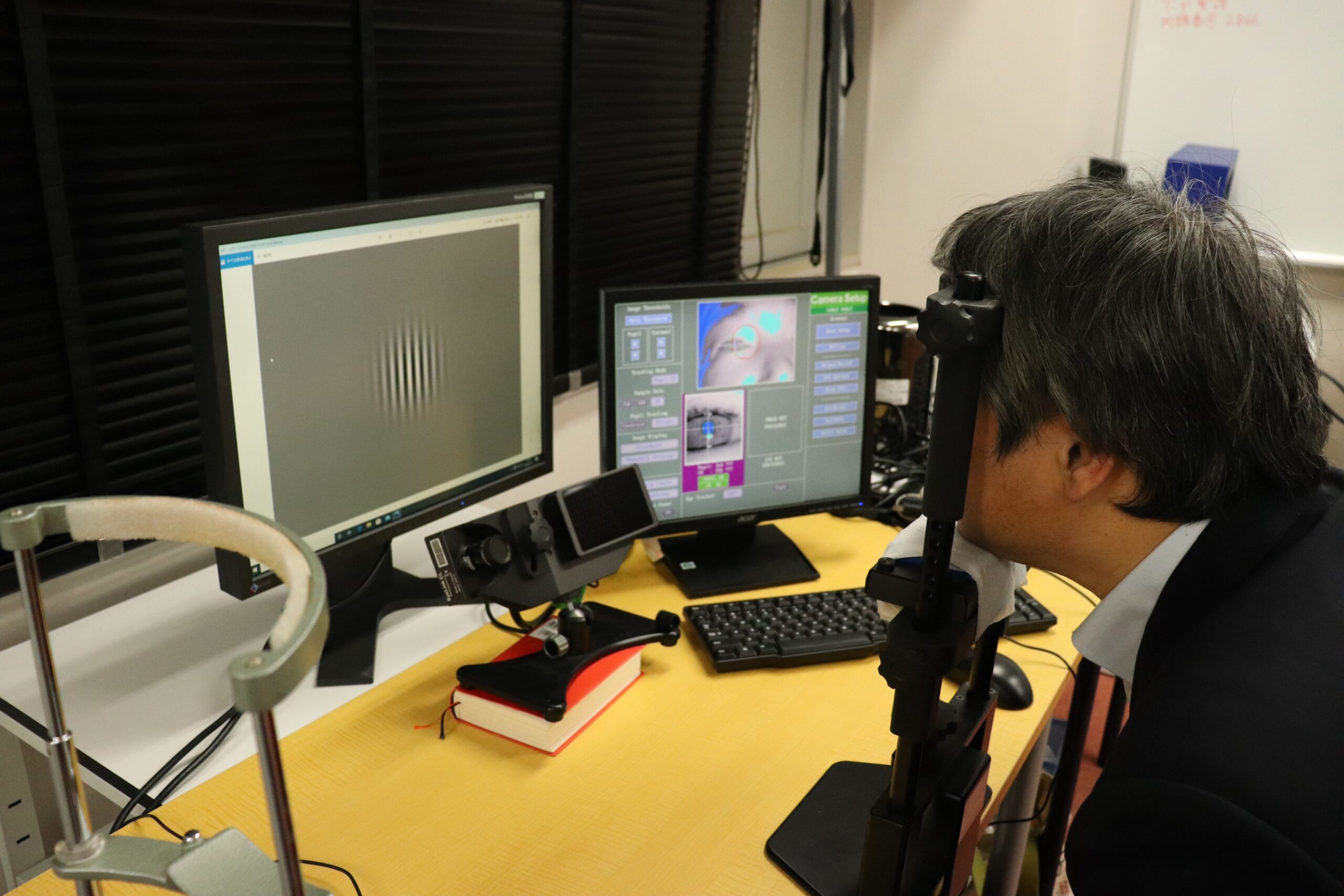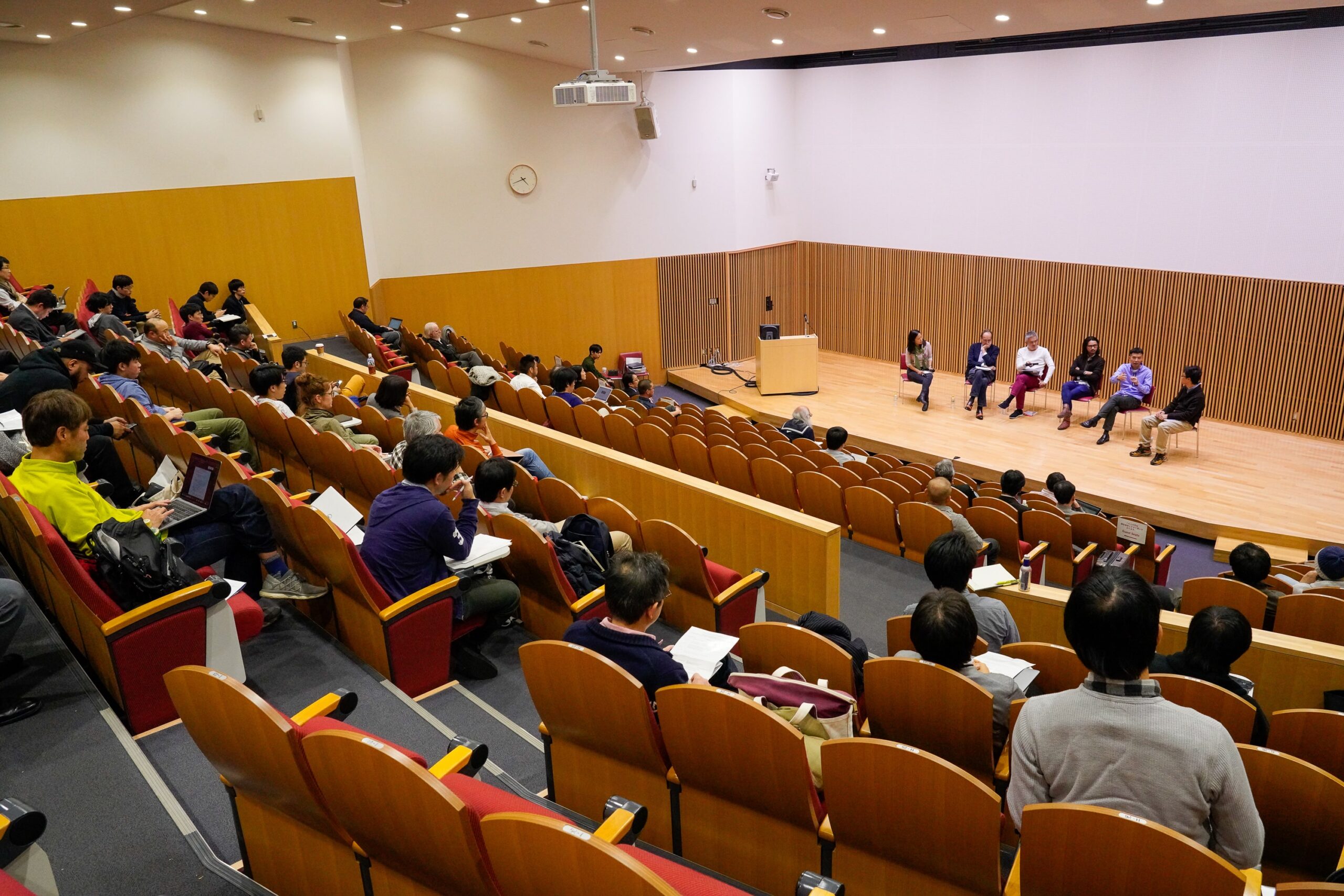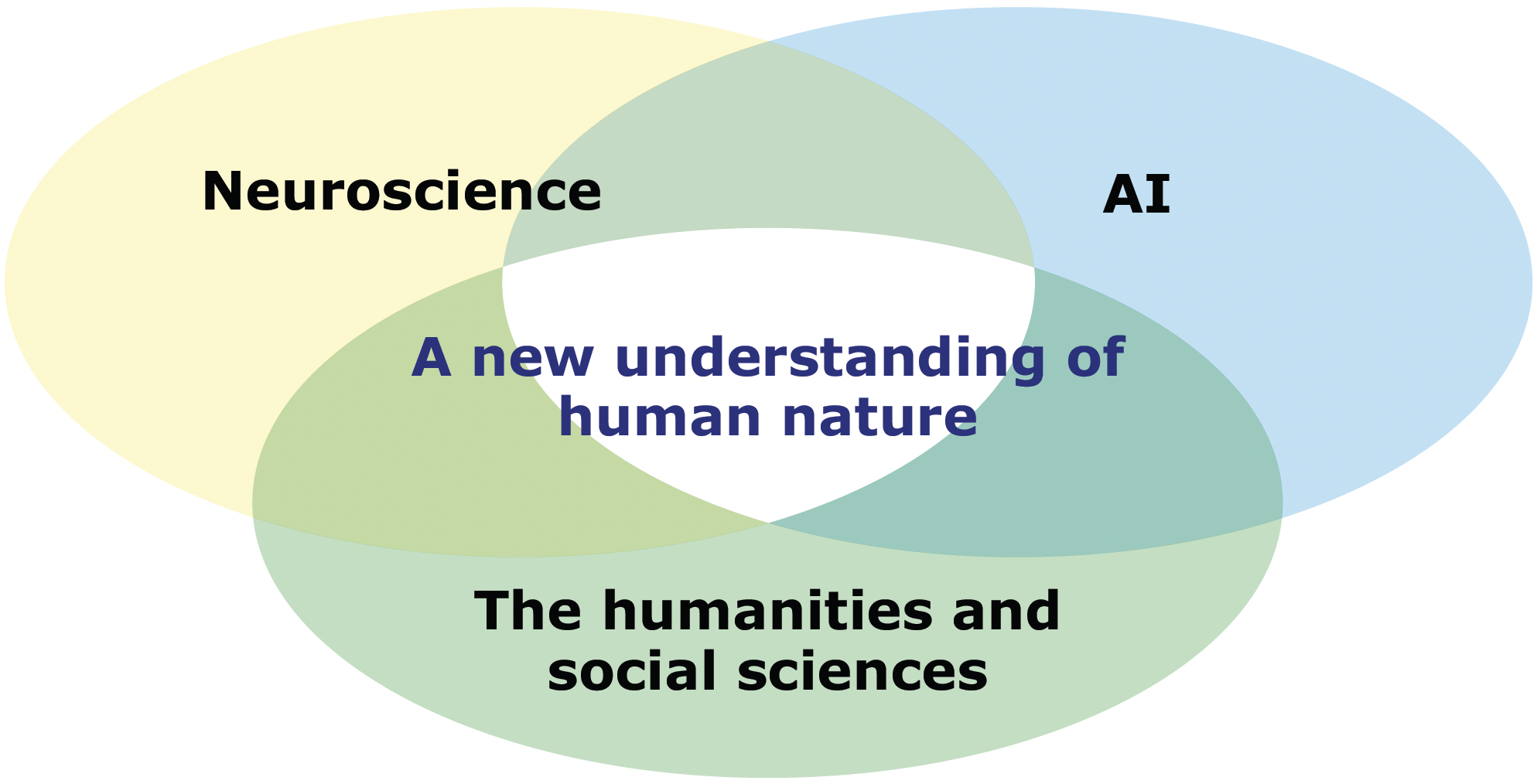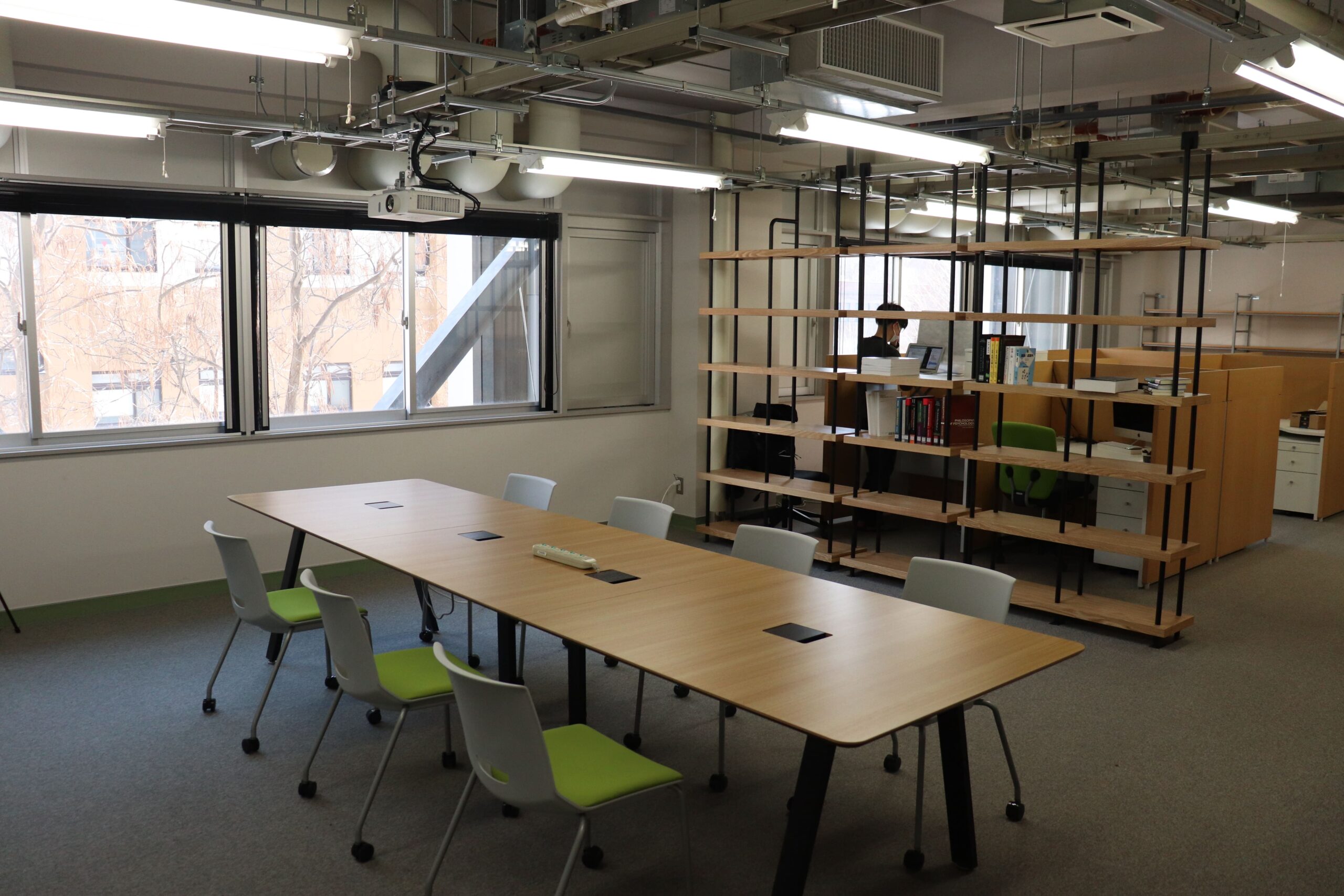Integrating wisdoms and exploring the frontiers
Research Highlight | October 13, 2021
This article was published in the Spring 2021 issue of Litterae Populi. The full issue can be found here.
The Center for Human Nature, Artificial Intelligence, and Neuroscience (CHAIN) was established as Japan’s only research center specializing in hybrid research and education in the humanities, social sciences, neuroscience and AI. With the mission to create new knowledge on the nature of human existence, the Center conducts research and education taking advantage of the strengths and characteristics of Hokkaido University as a leading research university.
In July 2019, the Center for Human Nature, Artificial Intelligence, and Neuroscience (CHAIN) was established as a university facility and it launched its activities. CHAIN’s mission is to provide interdisciplinary research and education that integrate arts and sciences at the intersection of the humanities, social sciences, neuroscience and artificial intelligence (AI), i.e., to be a place where new knowledge is generated.
Led by its director, Professor Shigeru Taguchi, CHAIN has five full-time specially appointed faculty members, three postdoctoral fellows, and 28 part-time faculty members from ten departments of the university. “By ‘human nature’, I am pointing to a new field of inquiry concerning the question of what it means to be human,” says Director Taguchi. “Research on neuroscience and artificial intelligence is moving into the territory of the humanities and social sciences.” Self-awareness is an example. How do I appear to other people? How can I know this when I am not like these others? We can approach such questions through science. Thus new knowledge emerges out of an interaction among philosophy, neuroscience and artificial intelligence.

The Center’s logo. The interlacing design represents the overlap between different fields of research which cultivates the creation of new knowledge on human nature.
The Center for Experimental Research in Social Sciences, one of the internal partners of CHAIN, owns a magnetic resonance imaging (MRI) device exclusively for experimental use, with which researchers can probe into the brain activities of subjects as they perform various tasks. Using this device, researchers in CHAIN have carried out neuroscientific experiments on the consciousness of self and other. They have also conducted simulation experiments using deep learning. The CHAIN team is running an AI with a “superimposition mechanism” in a virtual environment to reconstruct the process by which the distinction between self and other emerges as a result of learning through a simple and universal mechanism.
In terms of education, CHAIN began to recruit graduate students to an educational program in April 2020 and accepted students exceeding the planned capacity of 20. The program consists of three pillar contents: coursework, summer/winter schools, and internship. Students will receive a diploma (completion certification) after completing it by earning a predetermined number of credits. In the coursework, students acquire the basic knowledge necessary to conduct further research. As they come from different academic backgrounds, each student tailors their course plan to their needs. Students are offered with a list of courses divided into three categories, humanities and social sciences (e.g., philosophy and psychology), information science (e.g., deep learning) and neuroscience, and are expected to study subjects outside their major to obtain credits. In the summer/winter schools, students and faculties engage in interdisciplinary discussions with leading researchers from around the world. In the internships, students work on practical problems at research institutes and partner companies in Japan and abroad, where they can take advantage of personal connections and networks they foster in the summer/winter schools. Many partner companies and other organizations are willing to accept internship students, indicating the high expectations for human resources in this field.

Eye-tracking device. The research group of Specially Appointed Associate Professor Masatoshi Yoshida, a full-time faculty member of the Center, conducts research using eye tracking and neural activity measurements to elucidate the brain mechanisms of schizophrenia.
A hub in pursuit of “a new understanding of human nature”
The largest event hosted by CHAIN in the two years since its foundation was the international symposium entitled Adventures in Consciousness Science: Exploring the Crossover between Philosophy, Neuroscience, AI, and Robotics, held in November 2019. World-renowned researchers were invited from overseas, and discussions were held on state-of-the-art research results and future prospects. “It was quite a success with more than a hundred participants from all over Japan,” says Director Taguchi. “CHAIN is attracting more and more attention.”
Interest in CHAIN’s activities is also high among undergraduates, for whom there are no courses at present. The Center’s faculty members are communicating on social media (hashtag: #CHAIN_HU) with the motto “Do something exciting,” and they are receiving good responses. Students are also holding voluntary study groups on cognitive science. For undergraduate education, there are discussions about offering subjects that allow students to acquire basic literacy in ethical, legal and social problems that may arise in the process of the social implementation of AI and neuroscience. “It’s one of the hottest fields where new knowledge is actually being created,” says Director Taguchi. He expresses enthusiasm for the future: “CHAIN started out with the homey atmosphere of a family business, but with the expansion of activities, it will be necessary to establish a system for organizational efforts. We’re trying to create an environment where students will work in this field with interest and enthusiasm.”
It will take a couple more years until the world sees the first graduates from this educational system, but CHAIN is already bringing out steady outcomes both in terms of research and education. Its presence as a hub for international collaborative research is increasing day by day. CHAIN is progressing steadily to pioneer a new field.
This article was published in the Spring 2021 issue of Litterae Populi. The full issue can be found here.



